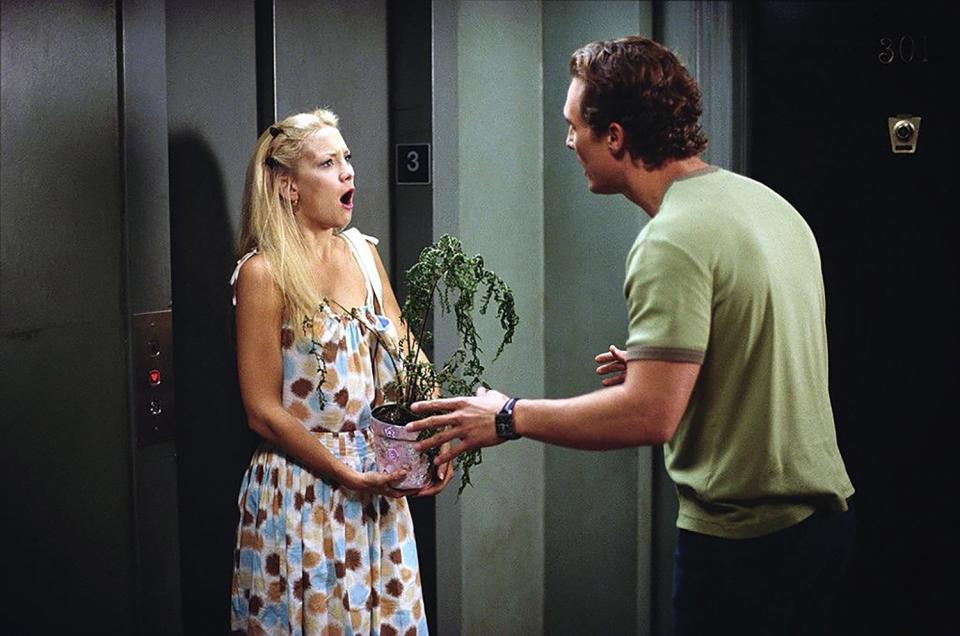Why We Need Romantic Comedies More Than Ever at This Moment

Naomi Shah is the founder and CEO of Meet Cute, a new entertainment company that makes short, audio romantic comedies. An ideal night for her is a rom com movie marathon with her friends and a big bowl of popcorn (which translates well to social distancing!). Before starting Meet Cute, she was a member of the investment team at Union Square Ventures, a technology venture capital firm in New York, where she spent most of her time talking to companies in the well-being space. She shares an essay about why the romantic comedy is more important than ever during a bleak time in our history – namely, the coronavirus pandemic.
In the last couple of weeks, a lot of articles and tweets have talked about the influence of the Black Death on the Renaissance. During that time, people explored and patronized art and other creative endeavors that made them feel good as a means of coping with the misery of mass death and bad news. This historical tie-in points to a similar future that might be full of modern-day Midsummer’s Night Dreams.
In the 1930s, during The Great Depression, entertainment and specifically romantic comedies (rom-coms) burgeoned. The decade before, movies had just transitioned from silent films to “talkies”, setting up Hollywood well to make stories about human connection. Movies like Sylvia Scarlett (1935), Bringing Up Baby (1938), Holiday (1938), Ninotchka (1939), The Philadelphia Story (1940), and Woman of the Year (1942) were entertaining people during the crises of a severe worldwide economic depression and the Second World War.
This same time period saw a rise in slapstick comedy that functioned similarly to rom-coms as escapism: Charlie Chaplin helped pull people out of difficult times by making them laugh and Disney also released their first feature-length film Snow White and The Seven Dwarfs. About 30 years later, Woody Allen entertained the masses in the Vietnam era of the 1970s with movies including Annie Hall (1977) and Manhattan (1977).
In fact, the modern “renaissance” of the rom-com — the ’90s — is an outlier in the genre, since movies like Pretty Woman and Runaway Bride thrived during a relatively peaceful era. This could be why the romantic comedy developed a reputation as being somewhat frivolous. Sure, these usually aren’t the movies that are shortlisted for awards, but this is a category that deserves a few moments of attention for helping us get through the tougher times and giving people a much-needed escape.

Paramount/courtesy Everett Collection
First, rom coms are hopeful and happy. They always end with a happily ever after. Many times, I feel like I’m watching a rom com for that one scene that I love (for example, this final scene on the bridge, from How To Lose A Guy in 10 Days). We sit through the 90 minutes of the movie to get the feeling that this scene brings out. It leaves us feeling like anything is possible and believing in serendipity.
Second, rom-coms are incredibly consistent. Each story has the same narrative arc; there’s some sort of “meet cute” moment between two characters where two people meet in a way that the audience knows they are destined to be together, even if they start out hating each other like Kat and Patrick in 10 Things I Hate About You (1999). Then there’s some sort of conflict that arises, a journey in which their connection grows stronger, the resolution, and the happily ever after. Because the narrative arc is not particularly innovative, it allows the audience to relax into the story because they know that the characters will end up together by the end of the story. The audience knows not to expect shocking deaths or tragic twists, and therefore it is okay to emotionally invest in the characters.

Warner Bros.
Third, rom-coms are about human connection. An interesting coincidence is that the pandemic kicked off around the same time as the Netflix series Love is Blind, a show about whether or not you could achieve human connection without being able to physically make contact. It’s not such a coincidence that the show took off — in an almost poetic way, mirroring the experience we were on the cusp of living. Right now, people want to feel as though they can connect to others, even if they are not able to physically.
Will we be feeling the need to live vicariously through others’ connections during this time period? Rom-coms remind us that there are so many ways for people to form connections and that there is an incredible amount of diversity in the characters and settings that keep the stories fresh. In highlighting some of the mundane, yet very important, moments – like an awkward pause or a regretful glance – that define human connection, these stories about love remain super-relatable in the most trying times.
Finally, rom-coms are bingeable. They are like macaroni and cheese for your brain; and therefore it’s not surprising that during times of economic or emotional hardship humans have turned to rom-coms as a way to escape from uncertainty in the world, and in the headlines. So, while you are socially distancing yourself from other people over the next few months, turn off the news for a bit, grab some actual mac and cheese, sink into the couch, and put on your favorite rom-com. It might “just what the doctor ordered.”


